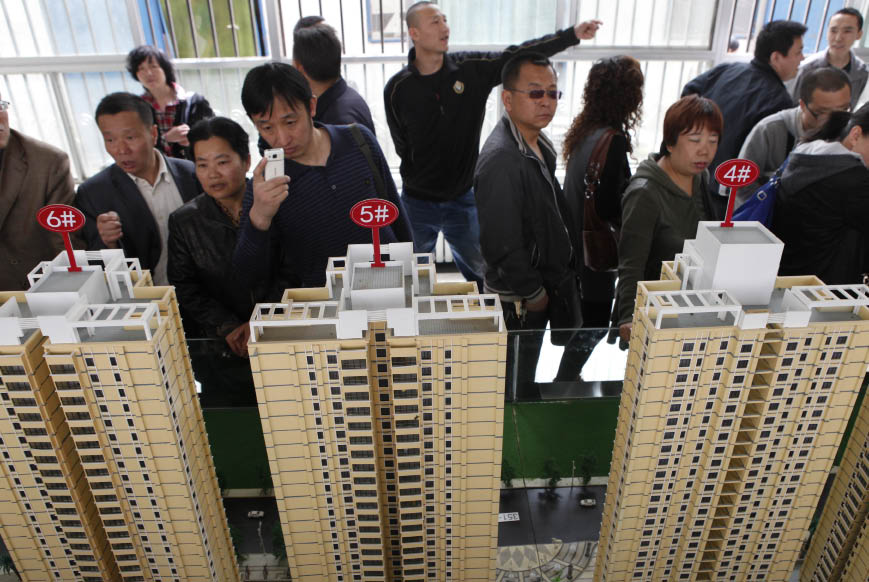“Moderately Prosperous Society” Is Key Goal for China

By JOHN ROSS
THE medium-term target of creating a “moderately prosperous society,” as set out at the Chinese Communist Party’s 18th National Congress, is potentially a pivotal moment in China’s development. It is not only an economic goal, but also one that aims to build a sense of social cohesion and purpose – things the country has sometimes been found lacking in recent years.
In light of the importance Hu Jintao attached to the concept in his report to the Congress, it is worth a look at what a “moderately prosperous society” will actually mean for China. We should also give a frank assessment of the country’s ability to succeed in building such a society.
When China embarked on reform and opening-up in 1978, it accepted that a certain level of inequality would be inevitable. It meant admitting that society could prosper and the country could revive itself by “sharing out poverty” equally was an illusion. This understanding was epitomized in Deng Xiaoping’s famous statement: “To be rich is glorious.”
From an economic viewpoint this policy was entirely necessary. It is impossible to lift such an enormous, heterogeneous society such as China’s from a position of low income to prosperity in a completely uniform manner. Unevenness was inevitable.
After 1978 the coastal regions of China initially grew much more rapidly than the inland regions. Inequality in the spread of wealth widened; billionaires emerged, while over 100 million people still live on less than US $1.5 per day to date.
While such developments were regarded inevitable in most quarters, they nonetheless proved detrimental to the cohesiveness of Chinese society. At worst, widening inequality produced cynicism and “moral disintegration.”
This is because to be “rich,” in the comparative sense, is something possible only for a small portion of the population. And the word “billionaire” really only has meaning to about a few hundred hard-working – or lucky – souls on the mainland.
The goal of creating a “moderately prosperous society” is different. To modify Deng Xiaoping’s famous statement, we could say of the goal: “For society to be rich is glorious.” This is not a criticism of Deng Xiaoping’s original statement – as readers of this column know, no one is a greater admirer of Deng Xiaoping’s economic policies than the author. But Deng himself always stressed that policy must answer the questions of moment and must change with the times.
 |
| Lanzhou releases 3,881 low-income housing apartments on April 24, 2012. |
When China launched its economic reforms it was poor by any standard. Today, after 35 years of roaring economic growth, this has changed. The goal of “moderate prosperity” – by which is meant decent living standards – is well within the grasp of all hard-working Chinese. Placing an emphasis on the “richness” of society - that is, on housing conditions, wages, quality of household goods, holidays, cars, health care, culture and entertainment – implies that China is becoming an advanced economy. A rich society, furthermore, provides social cohesion and a sense of belonging, and possesses a morality in itself.
When the most important statistics become not how many billionaires there are, but what is the average living space per person, what is the average income, how long are holidays, how many cinemas there are, how many people are on the Internet, what is life expectancy etc., then social cohesion will increase and cynicism and “moral emptiness” will decline. It is for this reason that the goal of a “moderately prosperous society” is so important not only for China’s economy but for its development in every sense. Such achievements are also the key to China’s international “soft power.”
Social indicators are important, but the foundation of the goal of a “moderately prosperous” society is still economic. As the issue is so important, it is necessary to rigorously test the numbers put forward in the 18th Congress report. Fortunately, this is a relatively easy task.
The goal stated in the 18th Congress report is to double GDP between 2010 and 2020. Doubling income per person in the same period means that the portions of GDP representing investment and consumption should remain essentially constant.
China’s GDP grew by 9.3 percent in 2011, and 2012 growth shouldn’t have fallen below 7.5 percent. Crunching the math, it follows that to achieve the goal of the 18th Congress report, average annual GDP growth has to be at least seven percent in 2013-2020. This is not only well below China’s average growth rate over the last 30 years, but even below the 7.5 percent targeted in the current five-year plan. It is therefore entirely possible to meet; exceeding it seems more likely.
A “moderately prosperous society” however relates to GDP per capita, not total GDP. The phrase is also essentially a Chinese idea somewhat clumsily translated into English, and hence doesn’t really find an equivalent in international terminology. So to make international comparisons it is useful to “translate” “moderately prosperous society’ to a World Bank term.
To calculate China’s growth of GDP per capita requires making an assumption on population growth. At present this is 0.5 percent annually, though it may fall slightly. If 0.5 percent population growth is assumed, together with 7 percent GDP growth, then by 2020 China’s annual GDP per capita will be US $8,500. This is 69 percent of the level necessary to qualify for the World Bank’s classification of a High Income Economy (HIE). Continuing the same trends, China would become an HIE in 2026. Small and completely realistic changes in assumptions – 0.4 percent population increase and eight percent GDP growth – would mean China becoming an HIE in 2024.
For China to become an HIE would dramatically change the world economy – China’s 1.3 billion-strong population would make it larger than the 1.1 billion living in HIEs at present. It would also transform the Chinese people’s housing conditions, quality of domestic goods, leisure time, health care and culture. It would equally transform the world market for the industries supplying these needs. This isn’t pie in the sky stuff – as we’ve calculated above, China’s becoming an HIE in the next decade and a half is a completely achievable goal.
Whether China wishes to refer the level of GDP per capita and living standards to be reached by 2020 as a “moderately prosperous society” is for it to decide. Perhaps for international comparison’s sake it is better to say that within 14 years China can enter the ranks of advanced – i.e. high-income – economies.
But that is a linguistic quibble. The most important thing is that the goal of China’s entering the ranks of High Income Economies within 14 years, of achieving a “moderately prosperous society,” is entirely doable. The reality of this, and what it means for the world, should be understood.

